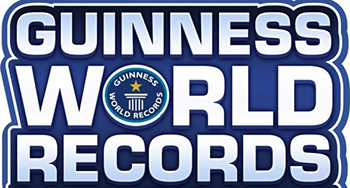Guinness Book of World Records, The
A Project Documenting Global Human and Natural Records[edit]
During a shooting party in 1951, the managing director of the Guinness Breweries, Sir Hugh Beaver, attempted to find an answer to the question of which was the fastest game bird in Europe. Unable to find a reliable source to solve this problem, Sir Beaver realized that many similar questions remain unanswered. He proposed then, to create a single book that would gather interesting facts and figures. In 1954, the twins Norris and Ross McWhirter published the first copy of The Guinness Book of Records, which became an immediate success and progressed to the best-seller list. Starting out as a trivial collection of facts, popular mainly in English pubs, the book went on to become a respectful source of information on human and natural records. The Guinness World Records Book can be considered as an interesting example of cultural diplomacy in practice as it transcends national, cultural, and linguistic boundaries between people.
